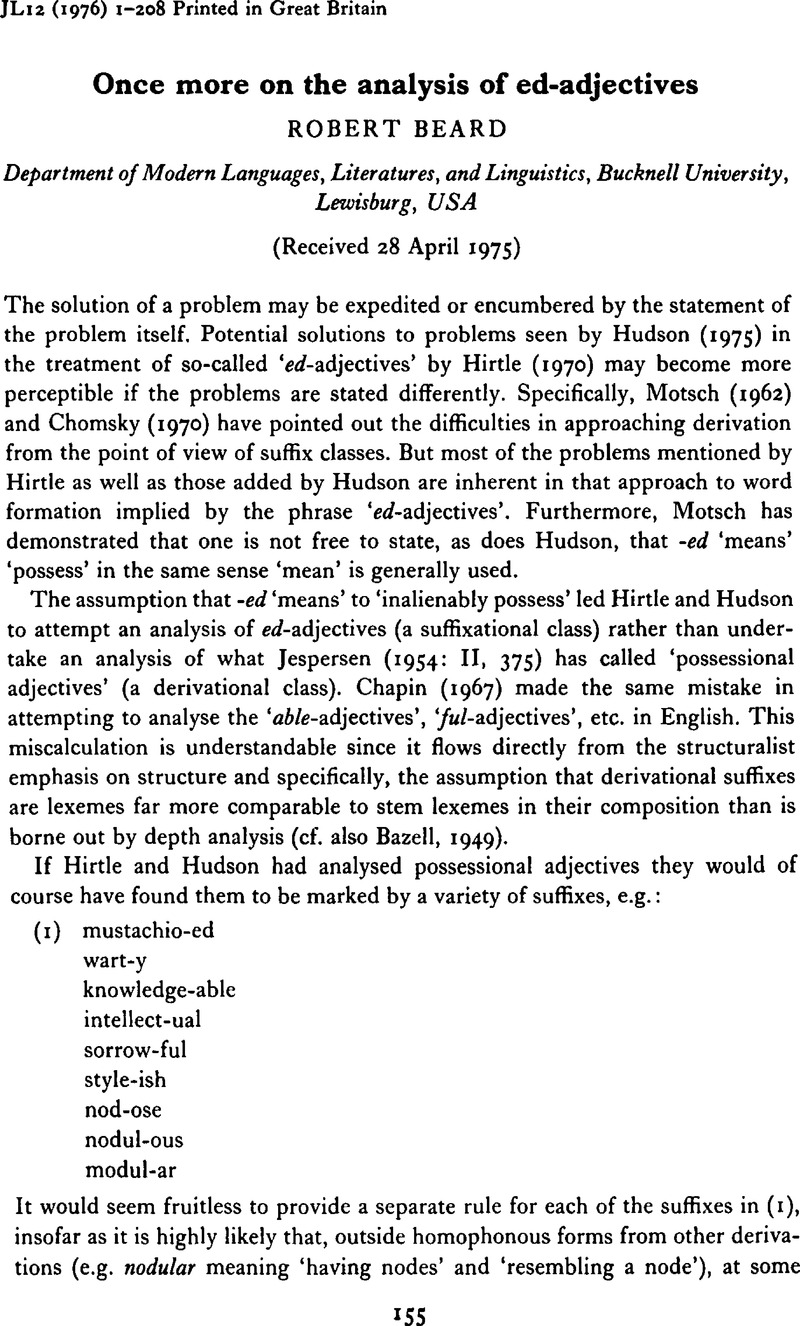Crossref Citations
This article has been cited by the following publications. This list is generated based on data provided by Crossref.
Beard, Robert E.
1981.
On the question of lexical regularity.
Journal of Linguistics,
Vol. 17,
Issue. 1,
p.
31.
1996.
The French Influence on Middle English Morphology.
p.
263.
Lieber, Rochelle
2005.
Handbook of Word-Formation.
Vol. 64,
Issue. ,
p.
375.
Chovanová, Iveta
and
Štichauer, Pavel
2014.
Morphology and Meaning.
Vol. 327,
Issue. ,
p.
141.
Berman, Ruth A.
2020.
Usage-Based Studies in Modern Hebrew.
Vol. 210,
Issue. ,
p.
507.
Bolozky, Shmuel
and
Berman, Ruth A.
2020.
Usage-Based Studies in Modern Hebrew.
Vol. 210,
Issue. ,
p.
265.
Zhan, Hongwei
Huang, Sihong
and
Sun, Lei
2023.
Paradigms as second-order schemas in English noun-participle compounding.
Review of Cognitive Linguistics,
Vol. 21,
Issue. 2,
p.
542.
Ishida, Takashi
2024.
Denominal -ed Adjectives and Their Adjectival Status in English Morphology.
Languages,
Vol. 9,
Issue. 5,
p.
169.
Hu, Xuhui
and
Perry, J. Joseph
2025.
Multifunctionality and contextual realization.
Linguistic Variation,
Vol. 25,
Issue. 1,
p.
1.


